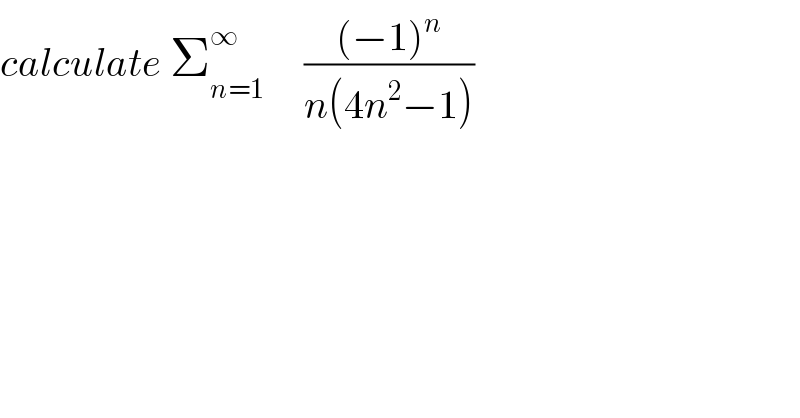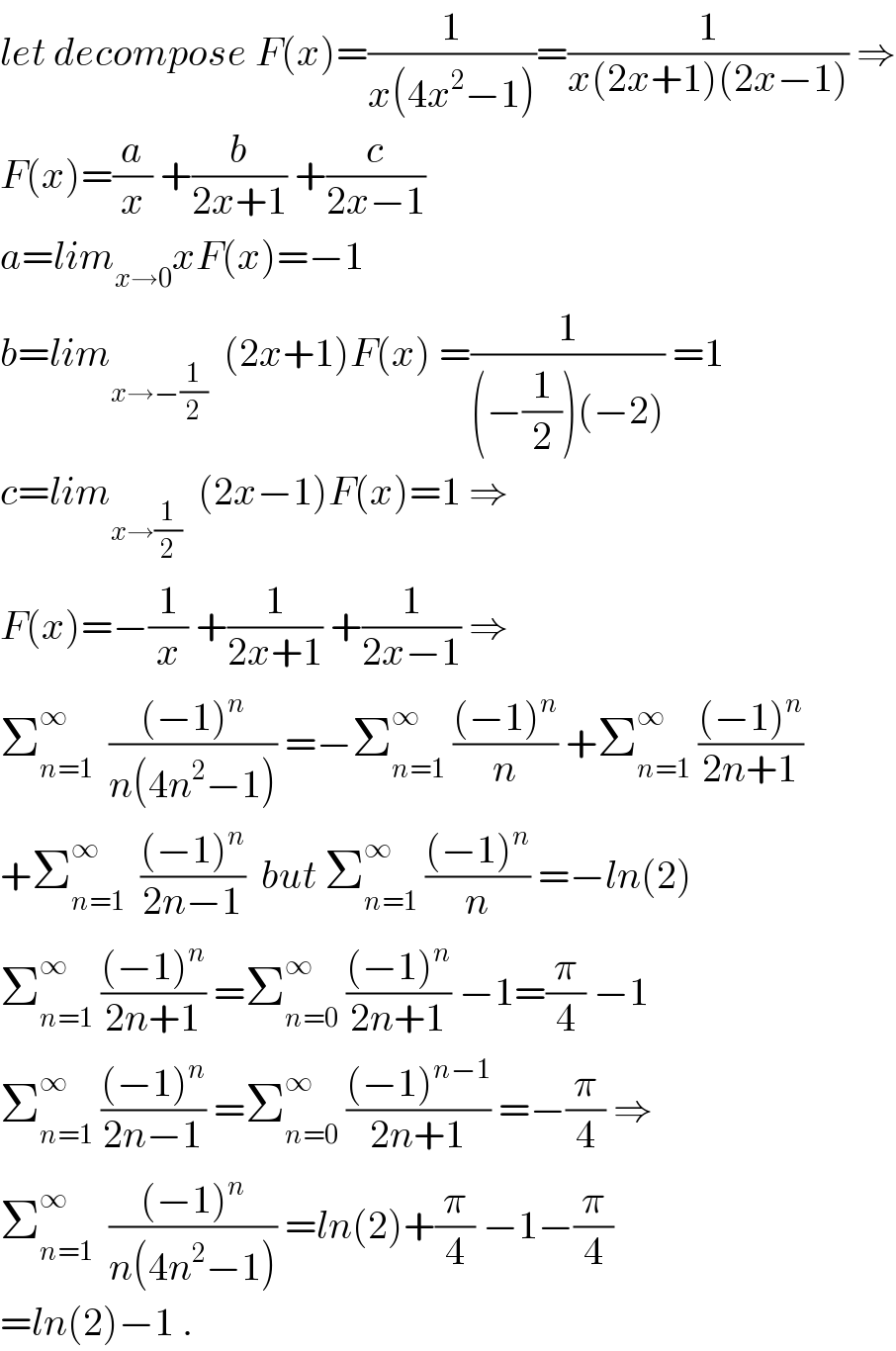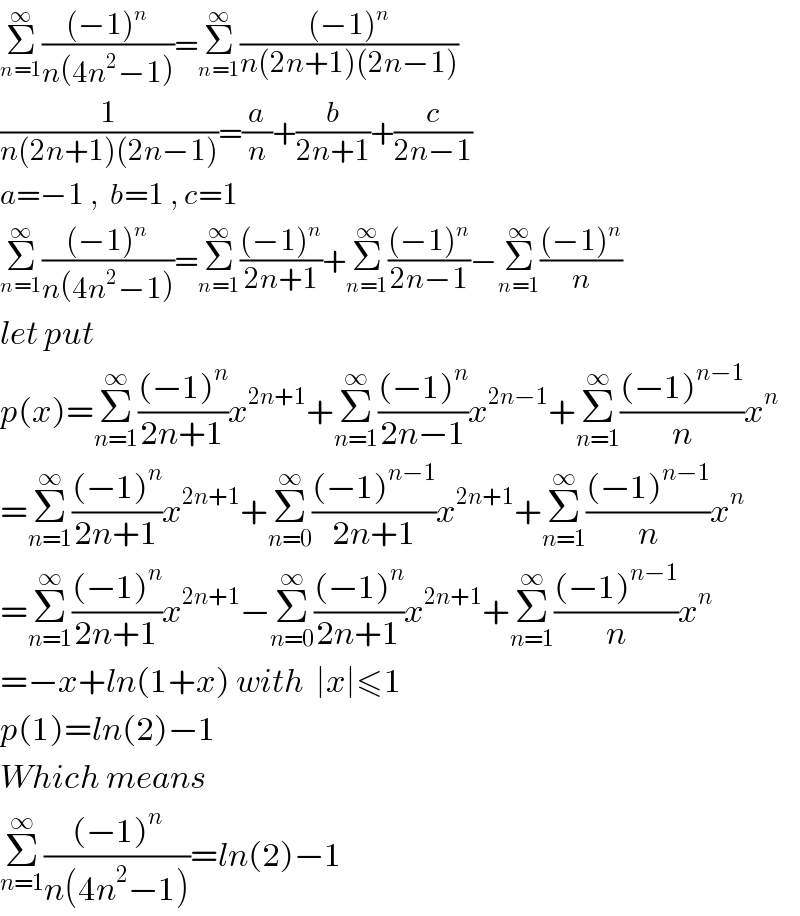
Question and Answers Forum
Previous in Relation and Functions Next in Relation and Functions
Question Number 52305 by Abdo msup. last updated on 05/Jan/19

Commented by Abdo msup. last updated on 06/Jan/19

Answered by Smail last updated on 06/Jan/19

Commented by Abdo msup. last updated on 06/Jan/19

